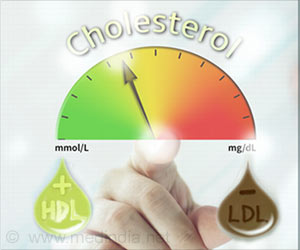Two researchers will debate whether guidelines for the treatment of high cholesterol are appropriate or not for people with type 2 diabetes at a symposium.

The new guidelines divide patients into four groups for whom statin treatment is recommended: individuals with cardiovascular disease; individuals with LDL cholesterol (LDL-C) levels higher than 190 mg/dL; individuals with diabetes, between the ages of 40-75, with LDL-C levels 70-189 mg/dL; and individuals without diabetes or cardiovascular disease, with LDL-C 70-189 mg/dL, and an estimated risk of cardiovascular disease greater than 7.5 percent. There are no specific target levels for lowering cholesterol, only the recommendation that statins be used to reduce it.
Under the new guidelines, the vast majority of people with type 2 diabetes would be recommended for statin therapy. But is that the right call?
Robert H. Eckel, MD, Professor of Medicine and Charles A. Boettcher Chair in Atherosclerosis at the University of Colorado, Anschutz Medical Campus, says, "Yes. Almost all people with diabetes should be on a statin. That's what the evidence tells us. You may not like the new guidelines, but these are evidence-based and this is what the evidence says."
Henry Ginsberg, MD, Irving Professor of Medicine and Director of the Irving Institute for Clinical and Translational Research at Columbia University, disagrees. "The guideline committee used the evidence-based construct much too narrowly," he said.
Ginsberg explained that he agreed with the recommendation to examine a person's risk for cardiovascular disease as well as their cholesterol level when determining whether to prescribe a statin. But he did not agree with the removal of target LDL cholesterol goals once a person is being treated with medication, or with the lack of recommendations for additional or alternative therapies.
Ginsberg said the new guidelines actually ignore evidence that shows the lower a patient's LDL-C level, the better. "How do you get to those lower levels if statins alone aren't enough?" he asked. "You add a non-statin."
The American Diabetes Association recommends that people with diabetes keep LDL-C levels at or below 100 mg/dL, or under 70 mg/dL if they also have cardiovascular disease. The Association recommends using high-dose statin therapy to reach those goals.
Ginsberg said he agrees with the Association's present guidelines, noting that they are based on a wealth of data that includes, but is not restricted to, randomized clinical trials.
Source-Eurekalert
 MEDINDIA
MEDINDIA



 Email
Email










